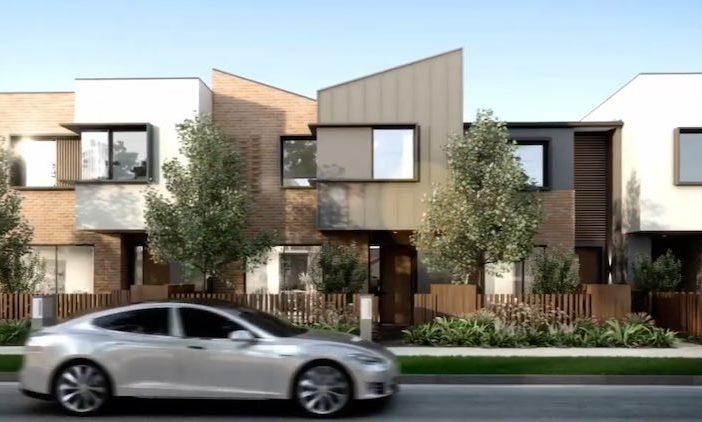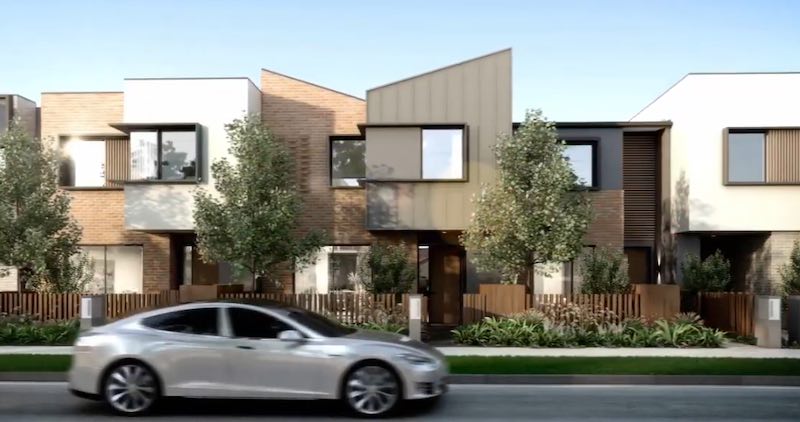
UPDATED: A Mirvac housing project planned for Melbourne’s south-west has been awarded $784,000 in funding from the Australian Renewable Energy Agency, to help demonstrate the feasibility of building “net zero energy” homes at scale.
The $2 million project, called The Fabric, will build 49 new 7-star energy rated townhouses, each with between 3.8-5kW of rooftop solar, 10kWh of battery storage, smart energy monitoring, and energy efficient electric appliances, heating, cooling, lighting and hot water systems.
The townhouses will also be “VPP ready,” in that they will be able to provide demand response via heating and cooling devices enabled to speak to the grid, and they be equipped to add an electric vehicle charger in the garage.
Mirvac Victoria has been taking some major steps to green its building portfolio, with the broader company pledging in June to be Net Positive Carbon by 2030, including through the development of all-electric buildings powered by 100 per cent renewable energy.
ARENA says The Fabric’s townhouses are intended to be all-electric – as you can see in the video still below, they offer induction cook-tops – but that “due to regulatory requirements” in Victoria, gas will still be available if the buyer wants to go down this path.
In a statement on Friday, ARENA CEO Darren Miller said the Agency hoped that the Mirvac trial would encourage a step change in the housing industry.
“Through this project, Mirvac will be able to offer home buyers features that will help reduce energy use, energy bills and emissions from the beginning,” he said.
“The Altona North site will provide the perfect test case in pushing to create change in the building industry and also inform potential buyers about the benefits of owning a net zero energy home,” he said.
Mirvac, which expects to begin construction of the townhouses in late 2020, says it sees The Fabric as “an extensive trial” of a net zero energy homes sustainability model.
“The goal is to create net-zero energy homes by incorporating low-energy-use and renewable-energy-power,” said Mirvac’s Victoria general manager of residential Elysa Anderson.
“Net zero homes at The Fabric will offer both environmental and economic benefits. Lower energy consumption enables families to spend less money on their utility bills; it’s also the most responsible and sustainable choice for future generations,” she said.
Among other projects, Mirvac Victoria has also agreed to trial Melbourne-made solar sharing technology from Allume Energy in at an apartment building it is building in Doncaster.
That technology – which we have written about here, here and here – works to extend the benefits of rooftop PV to apartment dwellers and mixed use commercial buildings, opening up a solar market previously not accessible to many renters and apartment dwellers.
Stuart Penklis, head of residential at Mirvac, said the company had been restricted in its use of solar on multi-occupant buildings, but that Allume’s software got around previous limitations, such as restricted roof space.
“We were so impressed with the technology that we have partnered with Allume and will deliver their shared solar technology on select apartments (at Folia) …And we are now assessing it for use across all our assets,” Penklis said.

Sophie is editor of One Step Off The Grid and editor of its sister site, Renew Economy. Sophie has been writing about clean energy for more than a decade.


